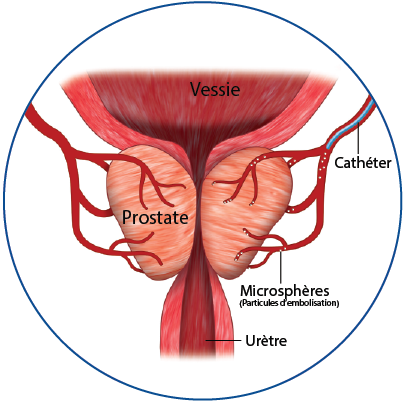Prostate Center Paris
What is the prostate gland ?
Introduction to the prostate gland
The prostate, a walnut-shaped gland located below the bladder in men, is often overlooked despite its crucial role in the male reproductive system and general health. This small gland plays a vital role in reproduction, producing the seminal fluid that nourishes and transports sperm. Yet it is also prone to a variety of health problems, underscoring the importance of understanding its anatomy, function and potential associated risks.
Anatomy and function of the prostate
The prostate is a complex structure made up of glands and muscles. It surrounds the urethra, the channel that carries urine from the bladder to the outside of the body, and is located just below the bladder. During ejaculation, the muscles of the prostate contract to expel seminal fluid into the urethra, which forms an important part of semen. In addition, the prostate produces an alkaline fluid that neutralizes the acidity of the vagina, helping sperm to survive in the vaginal environment.
What is the prostate ? the importance of the prostate in the body
The prostate plays an extremely important role in the male body, being essential to reproduction and sexual function. This gland produces a prostatic fluid that forms an essential part of sperm. This fluid protects and nourishes spermatozoa, improving their chances of survival and mobility in the female reproductive tract in order to successfully fertilize an egg.
In addition to its role in reproduction, the prostate also contributes to general health by maintaining the balance of urinary function. It surrounds the urethra, the channel through which urine is evacuated from the bladder, and helps control urine flow. By contributing to the proper functioning of the urinary system, the prostate plays an active role in maintaining a man's overall health.
Benign prostatic hyperplasia and prostate cancer
BPH is a common problem in older men, characterized by a non-cancerous enlargement of the prostate gland. This enlargement can lead to urinary symptoms such as difficulty urinating, frequent urination and a feeling of incomplete bladder emptying. Although BPH is not cancerous, it can have a significant impact on quality of life.
Prostate cancer is one of the most common cancers in men. It develops when prostate cells become abnormal and multiply uncontrollably. Symptoms of prostate cancer can include urinary problems, bone pain, erectile dysfunction and blood in the urine or semen. Regular screening is essential to detect prostate cancer at an early stage, increasing the chances of successful treatment.
Symptoms of enlarged prostate
The most common BPH symptoms and prostate cancer can be similar, and include urinary problems such as frequent urination, difficulty urinating and low urinary pressure. It's important to consult a healthcare professional if symptoms arise, as early diagnosis can improve treatment prospects.
Treatments for prostate enlargement
Prostate artery embolization is an innovative, less invasive method of treating BPH, offering several significant advantages. The procedure targets the blood vessels supplying the prostate, reducing its size and relieving urinary symptoms. Unlike traditional surgery, it is minimally invasive, preserving sexual and urinary function while offering rapid recovery. In conclusion, prostate embolization represents a major advance in the treatment of BPH, offering patients a safe and effective option for improving their quality of life.
Prevention and psychological impact of prostate problems
Adopting a healthy lifestyle can help reduce the risk of prostate problems. This includes maintaining a healthy weight, exercising regularly, eating a balanced diet rich in fruits, vegetables and whole grains, and limiting alcohol and tobacco consumption. Regular health checks can also help detect any problems early on.
Prostate problems can have a significant impact on men's mental and emotional health. Stress, anxiety and depression can result from physical symptoms, invasive treatments or concerns about long-term health. It's important for men to seek support and talk openly about their concerns with their healthcare professionals.
Conclusion
The prostate is a vital gland for male health, playing a crucial role in reproduction, urinary function and sexual health. Understanding the potential problems associated with the prostate, as well as the treatment and prevention options available, is essential to maintaining an optimal quality of life. By taking preventive measures and seeking treatment as soon as symptoms appear, men can reduce risks and maintain a healthy prostate.
ZOOM - news

Prostate and sexual health
A healthy prostate is essential for maintaining optimal sexual function. Prostate problems can lead to erectile dysfunction, ejaculation problems and reduced libido. However, with appropriate treatment and effective symptom management, many men can maintain a satisfying sex life.
